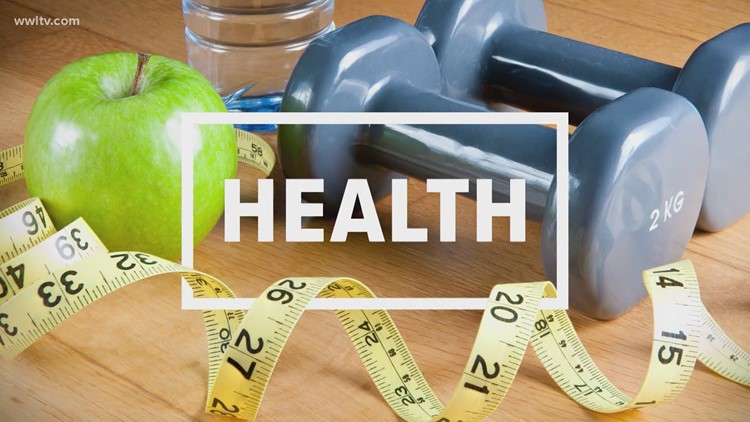NEW ORLEANS — Abnormal blood lipids – such as alterations in total cholesterol (TC), low-density lipoprotein cholesterol (LDL-C), triglycerides (TG), and high-density lipoprotein-cholesterol (HDL-C) – are major risk factors for cardiovascular disease (CVD).
Known collectively as dyslipidemia, these abnormal lipid fractions have a prevalence of 38.6% among individuals aged 40 and above – with alterations of one out of five US children and adolescents aged 8 to17 years - according to research – Ubiquinol (CO Enzyme Q10) Ameliorates Endothelial Dysfunction in Subjects with Mild-to-Moderate Dyslipidemia: A Randomized Clinical Trial, which appeared in the August 2020 issue of the journal Nutrients.
The endothelium is the largest organ in the body – composed of a layer of cells that lies between the wall of blood vessels and the bloodstream. It is a living shield that keeps the arteries clear of build-up and blockage, so that essential oxygen and nutrients can get to the vital organs of the body.
In addition, endothelial cells are involved in many aspects of vascular structure - acting as a barrier between the vessel lumen and surrounding tissue, while controlling the passage of materials and the transit of white blood cells into and out of the bloodstream.
The authors of the Nutrients study from South Africa and Italy state that, “the impairment of endothelial function (EF) predates the morphological changes of atherosclerosis and can mechanistically contribute to atherosclerosis-related diseases.”
Endothelial function can be assessed by flow-mediated dilation (FMD), which, “assumes that endothelial dysfunction (ED) is a systemic process involving the coronary arteries, as well as, the peripheral circulation.”
Using ultrasound technology, FMD estimates, “the dilation of a large peripheral conduit artery, typically the brachial artery, in response to the increased blood flow resulting from the removal of a transient ischemic stimulus. FMD has proved effective in evaluating the impact of several interventions on ED.
The researchers point out that coenzyme Q10 (CoQ10) – especially in its reduced form known as ubiquinol – “has improved endothelium-dependent vasodilation, as measured by FMD, in patients with type 2 diabetes, or coronary artery disease (CAD). However, the evidence of its effect on ED in subjects without clinical manifestations of atherosclerosis-related disease is limited.”
Mayoclinic.org states that CoQ10, “is an antioxidant that your body produces naturally. Your cells use CoQ10 for growth and maintenance. Levels of CoQ10 in your body decrease as you age. CoQ10 levels have also been found to be lower in people with certain conditions, such as heart disease.”
CoQ10 is found in meat, fish and whole grains. The amount of CoQ10 found in these dietary sources, according to Mayo, isn't enough to significantly increase CoQ10 levels in your body.
The Nutrient study authors sought to determine whether an 8-week ubiquinol supplementation period enhanced endothelium-dependent vasodilation in adults with moderate, untreated dyslipidemia and without evidence of CVD.
The researchers recruited fifty-one subjects with low-density lipoprotein (LDL) cholesterol levels of 130–200 mg/dL, who were not taking statins or other lipid-lowering treatments – with moderate (2.5%–6.0%) endothelial dysfunction, as measured by flow-mediated dilation (FMD) of the brachial artery, and no clinical signs of cardiovascular disease.
During the study period, the participants were randomized to receive either ubiquinol (200 or 100 mg/day) or a placebo. The primary objective was to determine the effect of the ubiquinol supplementation on FMD by the end of the study period.
The 8-week randomized, placebo-control study determined that “ubiquinol significantly ameliorated (reduced) dyslipidemia-related endothelial dysfunction. This effect was strongly related to increased nitric oxide bioavailability and was partly mediated by enhanced LDL antioxidant protection.” Of note, “the endothelium modulates the vascular tone mainly through nitric oxide synthesis.”
Before you decide to supplement on your own, you should always first check with your primary care physician for appropriate guidance.
Be sure to check out Maxwellnutrition.com – a science-driven, wellness content & nutritional supplement platform – where you will be able to see important, timely nutrition research and order, with direct shipping, the highest bio-available nutrition supplements. You also can download a free copy of my book, Stop Renting Your Health: Own it.
More Stories:
► Get breaking news from your neighborhood delivered directly to you by downloading the new FREE WWL-TV News app now in the IOS App Store or Google Play.



